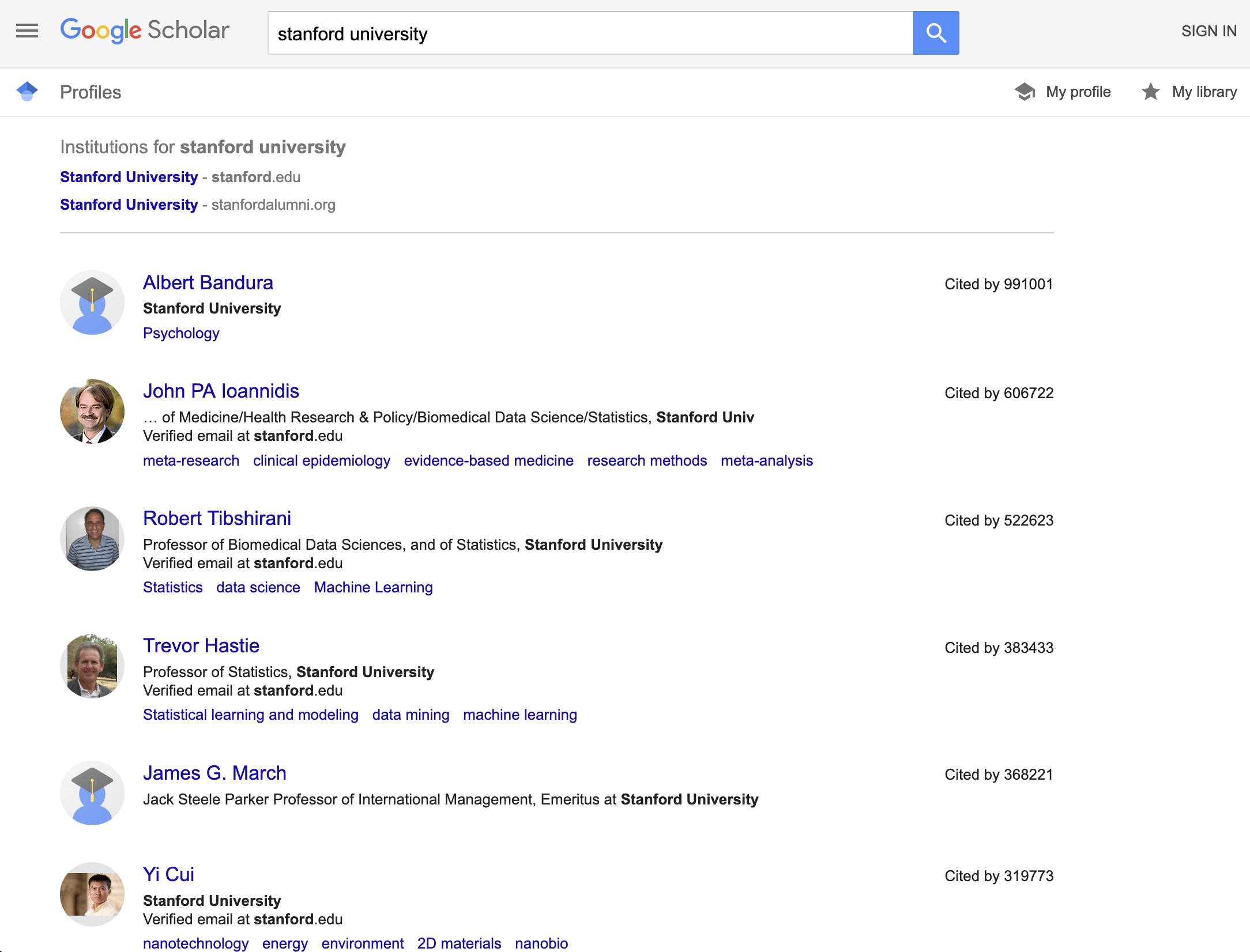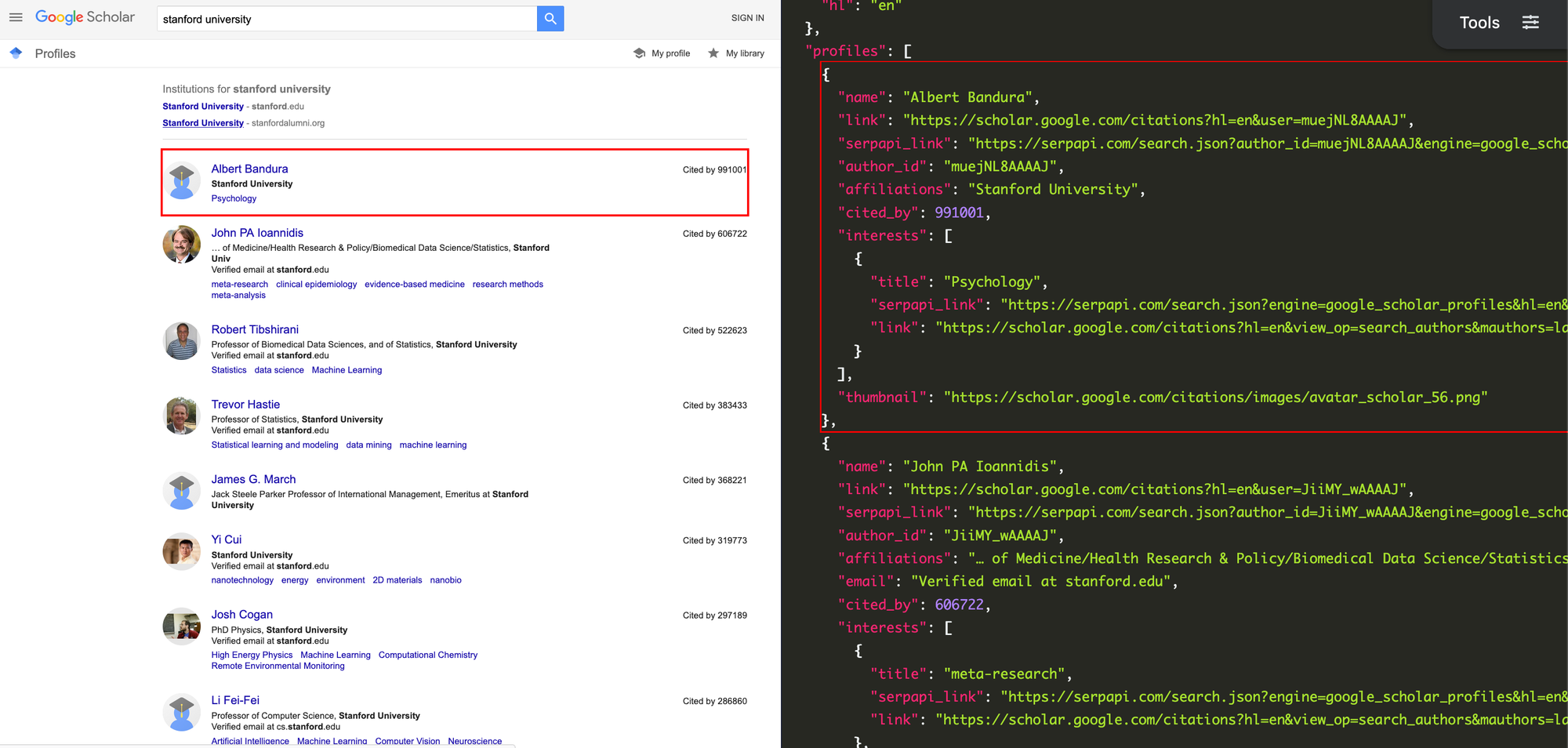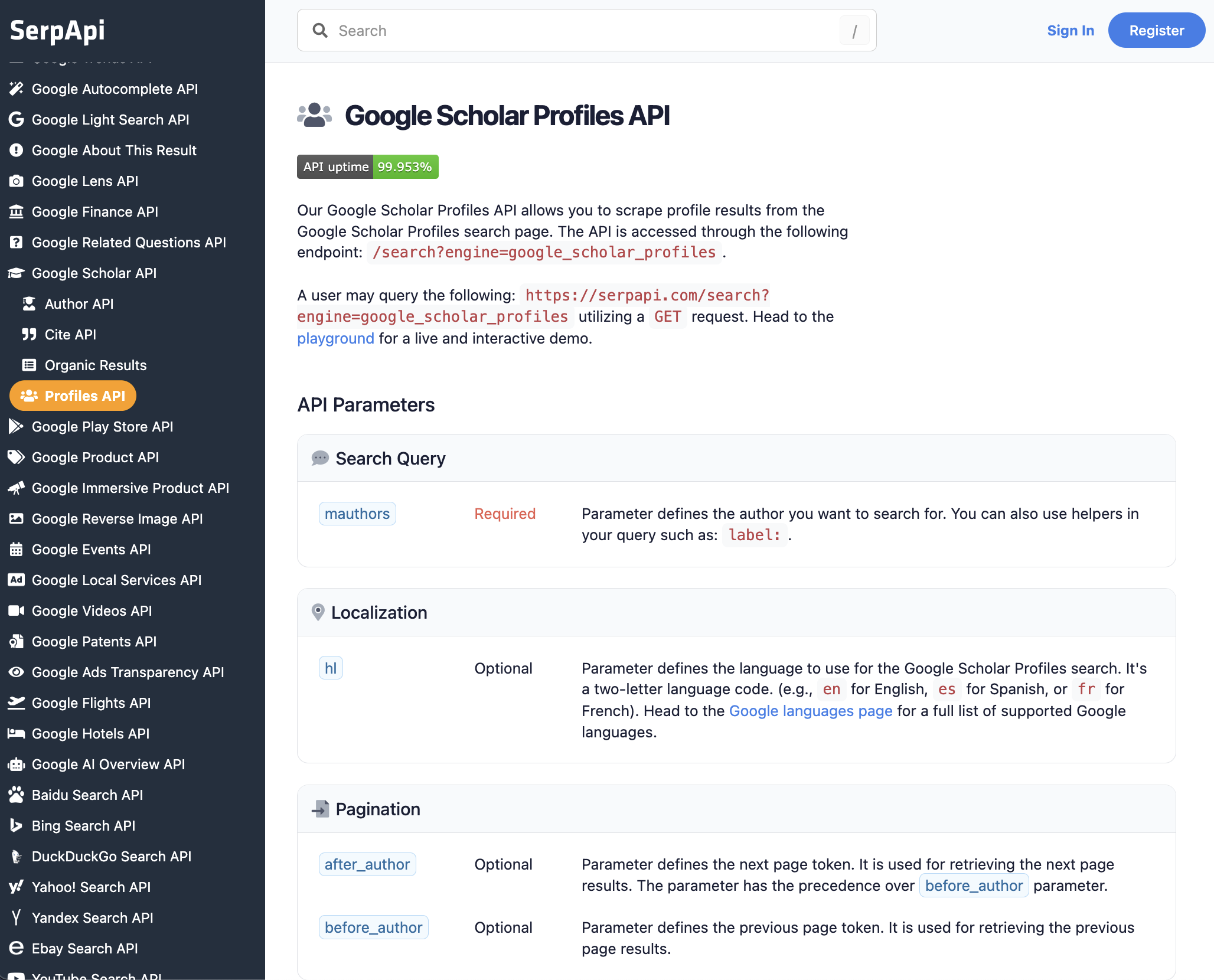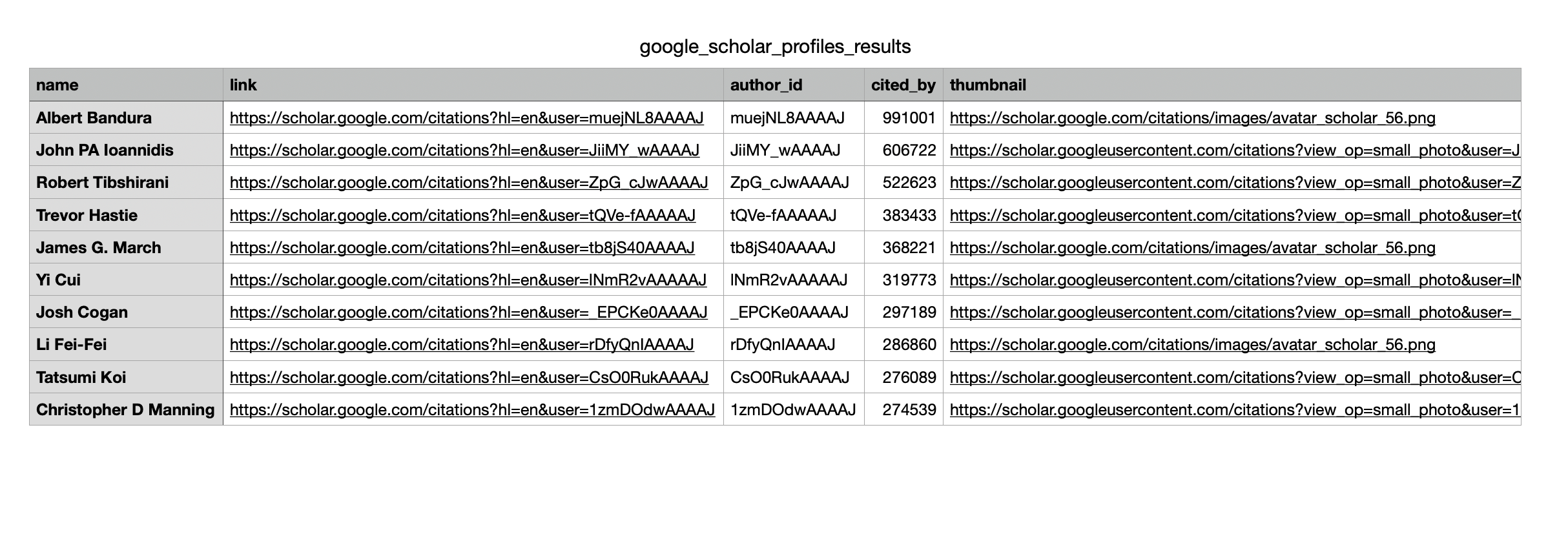Google Scholar profiles is one of largest database for academic insights. This is a valuable sources for researchers, institutions, industry stakeholders.

With some searches, you can measure academic influence based on citations, h-index and publication counts. You can scrape Google Scholar Profiles to enable large-scale comparisons for university ranks, faculty evaluations and funding allocation.
Besides that, if you want to look for experts in specific fields for research collaborations, peer reviews or consulting, Google Scholar Profiles is your friend.
You can do a lot more research with Google Scholar Profiles for sure.
Scraping data from Google is always challenging, same with Google Scholar Profiles. Like other search engines, SerpApi also provides a high quality Google Scholar Profiles API.
You can scrape Google Scholar Profiles easier with us. Let's write some lines of code to scrape Google Scholar Profiles with SerpApi.

Setting Up a SerpApi Account
SerpApi offers a free plan for newly created accounts. Head to the sign-up page to register an account and complete your first search with our interactive playground. When you want to do more searches with us, please visit the pricing page.
Once you are familiar with all the results, you can utilize SERP APIs using your API Key.

Scrape your first Google Scholar Profiles result with SerpApi
Head to the Google Scholar Profiles API from the documentation on SerpApi for details.
Let's collect top research at Stanford University . The data contains: "name", "link", "author_id", "cited_by", "thumbnail" and more. You can also scrape even more information with SerpApi.
First, you need to install the SerpApi client library.
pip install google-search-resultsSet up the SerpApi credentials and search.
from serpapi import GoogleSearch
import os, json, csv
params = {
'api_key': 'YOUR_API_KEY', # your serpapi api
'engine': 'google_scholar_profiles', # SerpApi search engine
'mauthors': 'Stanford University',
}
To retrieve Google Scholar Profiles Results for a query, you can use the following code:
results = GoogleSearch(params).get_dict()['profiles']You can store Google Scholar Profiles Results JSON data in databases or export them to a CSV file.
import csv
header = ["name", "link", "author_id", "cited_by", "thumbnail"]
with open("google_scholar_profiles_results.csv", "w", encoding="UTF8", newline="") as f:
writer = csv.writer(f)
writer.writerow(header)
for item in results:
writer.writerow([item.get('name'), item.get('link'), item.get('author_id'), item.get('cited_by'), item.get('thumbnail')])

This example uses Python, but you can also use all your favorite programming languages like Ruby, NodeJS, Java, PHP, and more.
If you have any questions, please feel free to contact me.
